Verses Of The Quran About Hijab (All You Need To Know)
There are many verses Of The Quran About Hijab and Prophetic hadiths about the importance of hijab in Islam for Muslim women.
Advertisements
For more and explaination of these verses, please read the blog post.
Verse Of The Quran About Hijab
Here is the first verse Of The Quran About Hijab. Allah says;
O Prophet, tell your wives and daughters, and the believing women, to put on their jalabeeb [when they go out]; this will make it more likely that they will be recognised [as chaste women] and will not be harassed. And Allah is Oft-Forgiving, Most Merciful.
Advertisements
Explaination Of Hijab Ayat in Quran
This verse is known as the hijab verse, in which Allah instructs His Prophet SAW to teach women in general to wear hijab, beginning with his wives and daughters.
Because the instruction is more emphatic in their case than in other women’s, and because the one who instructs others to do something should start with his family before instructing others.
To put on their jalabeeb [when they go out].
The jilbab (singular of jalabeeb) is an outer garment worn over the head cover, top garment, and other similar items.
Women should cover their faces and chests.
Advertisements
Then Allah explains the wisdom behind it:
This will make it more likely that they will be recognised [as chaste women] and will not be harassed.
This implies that they could be harassed if they did not wear hijab, because if they did not wear hijab, it could be assumed that they were not chaste, and men with a disease in their hearts might harass them.”
Advertisements
Furthermore, people would dismiss them as slave women, and anyone with nefarious intentions might think less of them.
Hijab serves as a deterrent to those who wish to harm them.

Other Verses Of The Quran About Hijab
Allah SWT says in the Qur’an,
Tell the believing women to avert their gaze [from that which is forbidden] and restrain their carnal desires, and not to show their adornments except what ordinarily appears thereof.
And let them draw [part of] their headcovers over their chests and not show their adornments except to their husbands, their fathers, their husbands’ fathers, their sons, their husbands’ sons, their brothers, their brothers’ sons, their sisters’ sons, their [fellow Muslim] women, slaves whom they own, male retainers who are free of physical desire, or small children who still have no awareness of the private aspects of women.
Nor let them stamp their feet in order to draw attention to their hidden ornaments.
And, O believers, turn all together towards Allah in repentance, so that you may prosper.
Surah An Nur, Verse 31
Explaination Of Verses About Hijab In The Quran
After telling believing men to divert their sight and control their carnal cravings, Allah now instructs believing women to do the same:
Tell the believing women to avert their gaze and avoid looking at what they are not supposed to look at, such as looking at men with desire and other kinds of prohibited looking.
And restrain their carnal desires by not allowing anyone to have intamitate with them, touch them, or look at them in prohibited ways.
Because the outer garment cannot be hidden, Allah says that except what typically appears thereto, that is, the outer garment that is normally worn, as long as there is nothing in it that could bring temptation.
And let them draw part of their headcovers over their chests.
This is in order for them to perfect their concealment.
This means that, as previously stated, the decoration that is prohibited to exhibit comprises the full body.
The prohibition on showing ornamentation is then repeated by Allah, who subsequently grants an exception:
Their sons, their husbands’ sons, their brothers, their brothers’ sons, through the father or mother.
This includes the father himself, and grandfathers, no matter how far the line of descent reaches.
Their [fellow Muslim] women), this includes both full and half-brothers (their sisters’ sons.
That is, ladies are allowed to stare at each other in any situation.
It’s possible that “their women” refers to women of the same religion as them, i.e. other Muslim women.
Those who argue that it is not acceptable for a dhimmi (non-Muslim) lady to see a Muslim woman cite this as proof (without hijab).
Slaves whom they own, If the woman owns him entirely, a slave is allowed to see his mistress as long as he belongs to her.
It is not legal for him to see her if that ownership ends, either completely or partially.
Male retainers who aren’t intamitatly attracted to each other.
That is, those who are reliant on you and linked to you by men who have no desire, such as those who have an intellectual handicap and are unaware of what is going on around them, or those who are impotent and have no physical or desire.
It is not illegal for these people to look at the woman in this situation.
Little toddlers who are still unaware of women’s private aspects.
Specifically, children under the age of discernment. It is permitted for them to gaze at women who are not mahrams.
The reason for this, as Allah states, is that they are unaware of women’s private lives.
In other words, they do not yet have knowledge or desire.
Women should cover in front of the child once he has reached the age of discernment, because he is now aware of the private features of women.
Nor let them stamp their feet to bring attention to their hidden ornaments.
This indicates that they should not stamp their feet on the ground so that the jewellery they are wearing, such as anklets and the like, produces a noise that their adornments are known, and thus become a source of temptation.
The notion of limiting the means is developed from this poem and others. If something is lawful in and of itself, but it has the potential to lead to something banned, or there is a risk that it will, it is prohibited.
In theory, stamping one’s feet on the ground is legal, however it is prohibited if it is used to reveal hidden decorations.
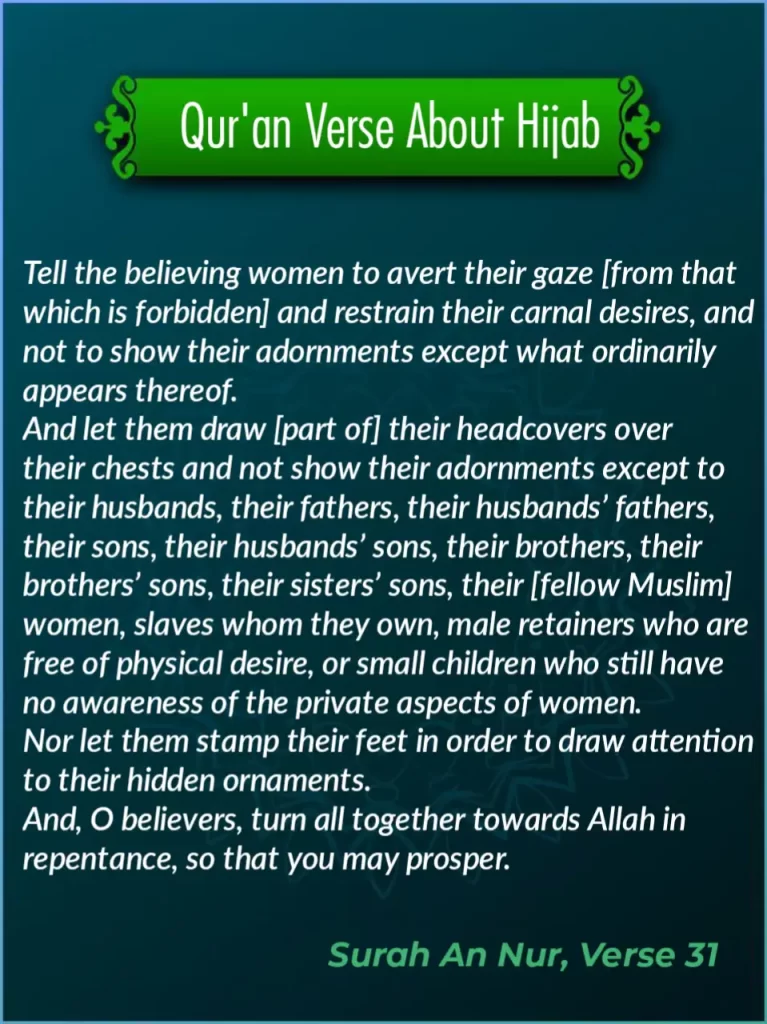
Quran Verse About Hijab
Allah Subhanahu Wata’ala says in the Qur’an
With regard to elderly women who have no interest in marriage, there is no blame on them if they put aside their outer garments, without aiming to flaunt their adornments. But if they refrain from doing so, that is better for them. And Allah is All-Hearing, All-Knowing.
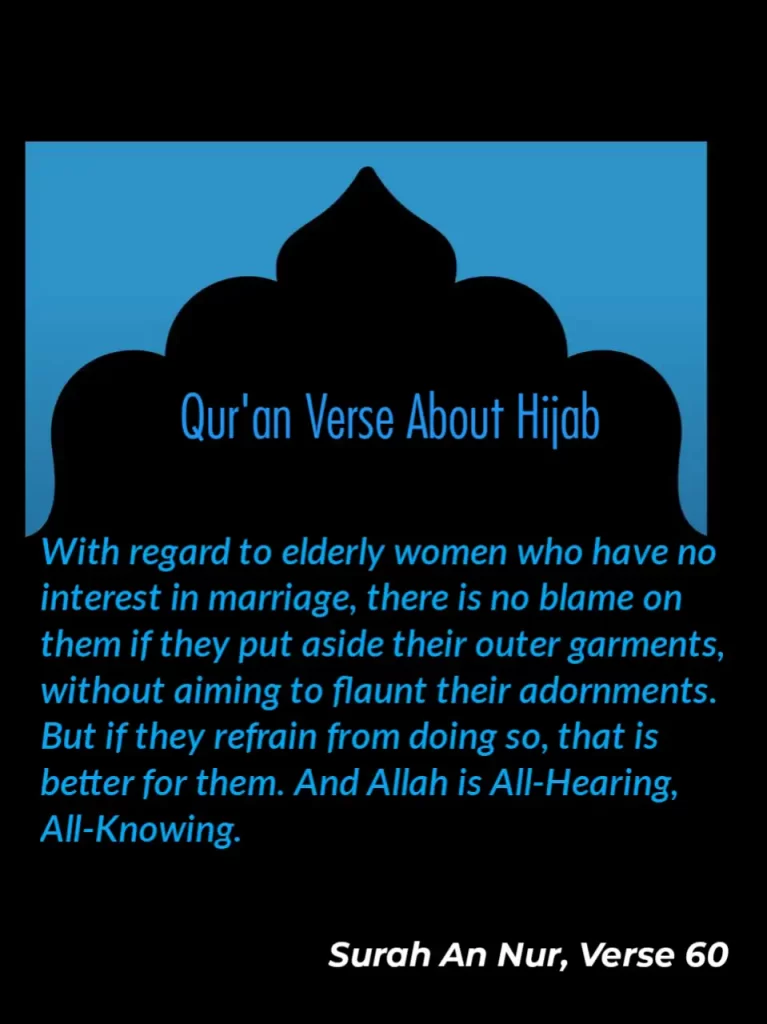
Elderly women are those who have lost their desire for marriage and have no desire to marry.
They do not want to marry and are not sought for marriage because they have grown old and are no longer desirable, or because they have lost their looks.
They are no longer desirable and do not feel desired.
There is no blame or sin on them if they remove their outer clothes, such as the face veil and other such items, about which Allah says to women in the other verse.
It is permitted for these ladies to expose their faces because there is no danger of their spreading temptation to others or being tempted themselves.
Because it is stated that they will not be held responsible if they remove their outer garments, one may believe that it is permissible for them to adorn themselves.
Therefore, Allah says without aiming to flaunt their adornments, that is, without displaying their adornments to others, such as beautifying themselves by wearing a fancy outer garment while covering the face, or stamping the feet to reveal what is hidden of adornment.
You may consider reading Surah Kausar Translation In English (Inna Ataina Translation In English) and Best Deeds In The Eyes Of Allah (Comprehensive List)
Advertisements


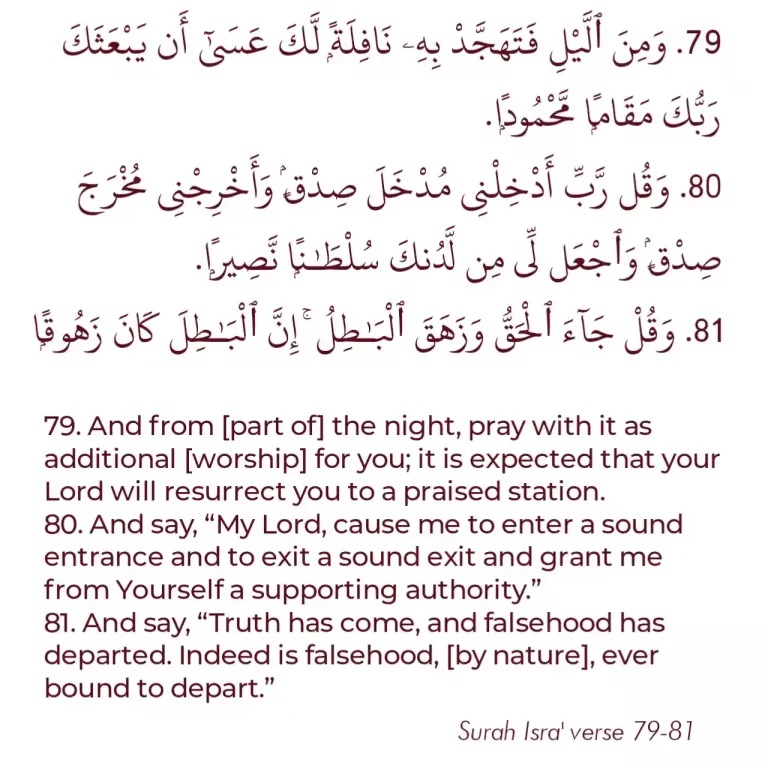
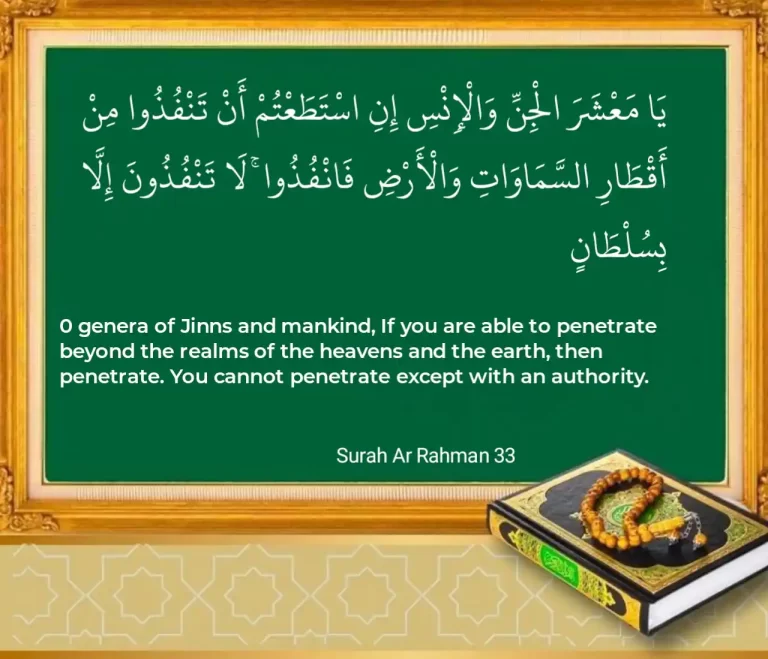
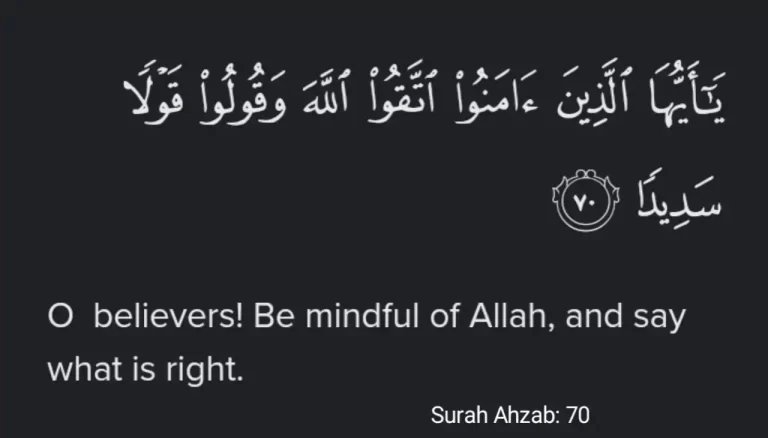
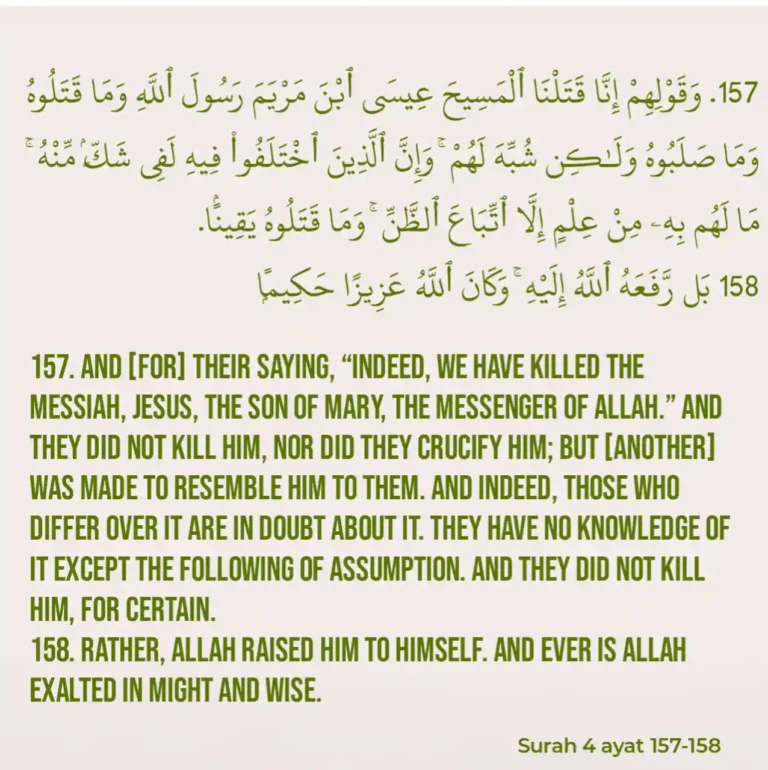
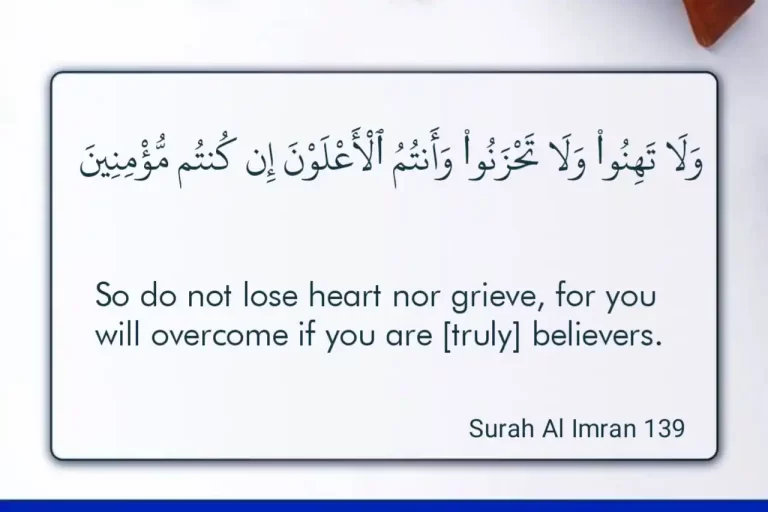

One Comment